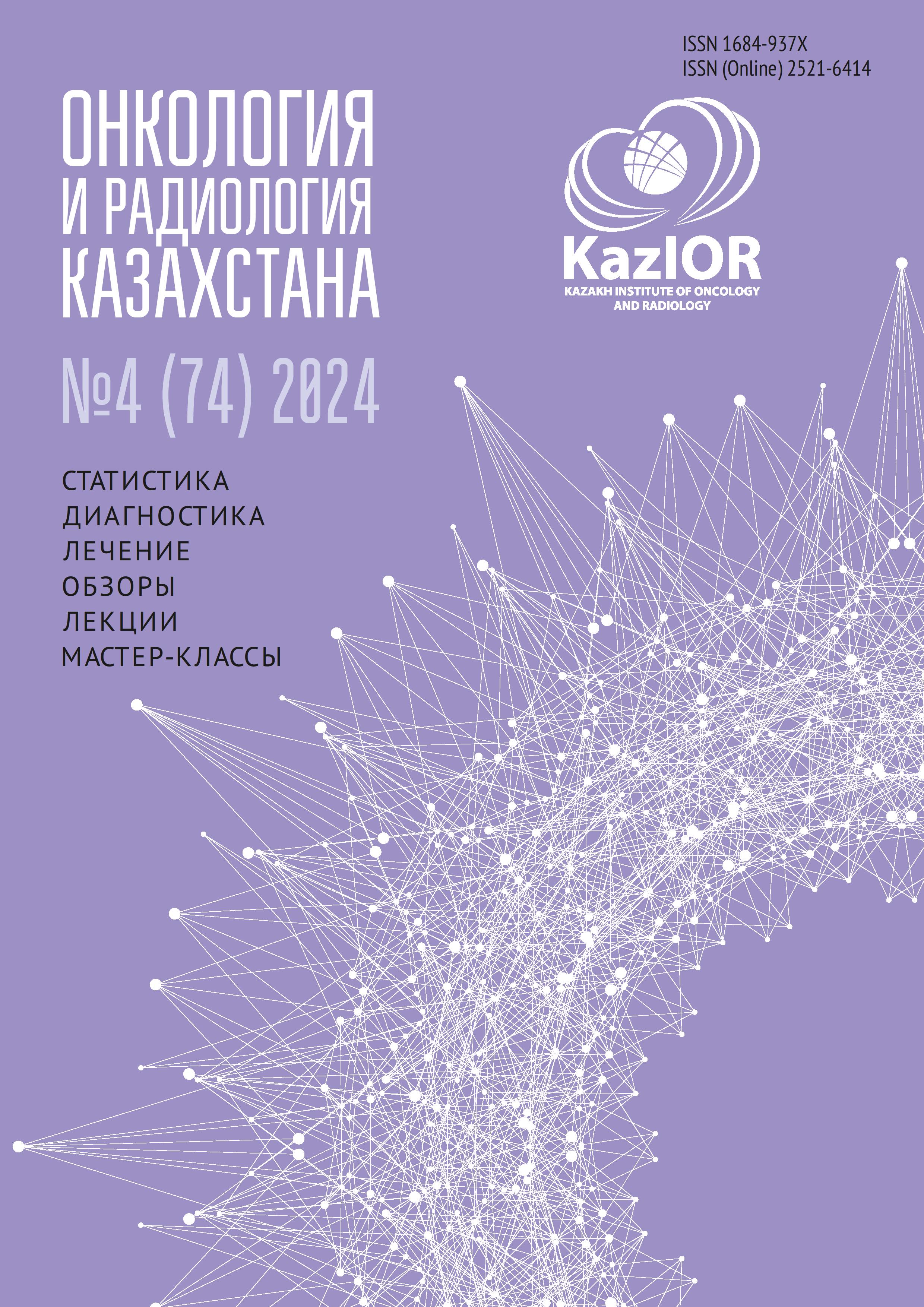Перспективы применения уровней внеклеточных нейтрофильных ловушек при колоректальном раке: обзор литературы
DOI:
https://doi.org/10.52532/2521-6414-2024-4-74-314Ключевые слова:
внеклеточные нейтрофильные ловушки, нетоз, колоректальный рак, онкология, иммунология, биомаркерыАннотация
Актуальность: В данной работе представлена оценка возможности альтернативного вида иммунного ответа нейтрофилов – способности к нетозу, или же образованию «внеклеточных ловушек» (ВНЛ). ВНЛ оказывают влияние на процессы канцерогенеза и метастазирования рака, играют роль в формировании опухолевого микроокружения и опухоль-ассоциированного воспаления. Изучение нетоза позволило глубже понять механизмы межклеточных взаимодействий опухолевого микроокружения.ВНЛ также потенциально могут стать маркерами прогноза течения и предикторами осложнений противоопухолевого лечения различных онкологических заболеваний, в том числе колоректального рака (КРР).
Цель исследования – обобщение и систематизация актуальной информации по внеклеточным нейтрофильным ловушкам, их влиянию на течение и процесс метастазирования колоректального рака и возможности применения в клинической практике.
Методы: Произведен поиск и отбор статей в базах данных Pubmed, Web of Science, Scopus, РИНЦ по ключевым словам исследования; в обзор были включены статьи давностью не более 10 лет.
Результаты: ВНЛ играют важную роль в иммунном ответе на опухолевые ниши и процесс метастазирования различных солидных опухолей. Имеются данные о возможности использования ВНЛ в качестве прогностического маркера при различных онкологических заболеваниях. Экспериментальные и клинические исследования показали потенциальную взаимосвязь уровней ВНЛ и формирования резистентности к химиотерапии, а также влияние химиотерапии на частоту различных осложнений. Химиотерапия 5-Фторурацилом, по результатам экспериментальных работ выраженно повышает образование ВНЛ. Влияние на механизм высвобождения ВНЛ показало ограниченную клиническую эффективность при проведении химиотерапии у пациентов с КРР с мутацией PIK3CA.
Феномен ВНЛ все еще недостаточно изучен, и необходимо проведение большего количества исследований для широкого внедрения этого показателя в рутинную практику, однако исследования в данном направлении потенциально могут иметь широкие перспективы для клинического применения.
Заключение: Развитие иммунологии и открытие процесса нетоза позволило глубже понять механизмы взаимодействий в опухолевом микроокружении. Изучение этого процесса может позволить контролировать либо прогнозировать прогрессирование онкологических заболеваний и осложнений противоопухолевого лечения.

